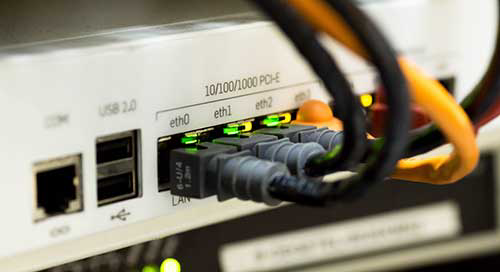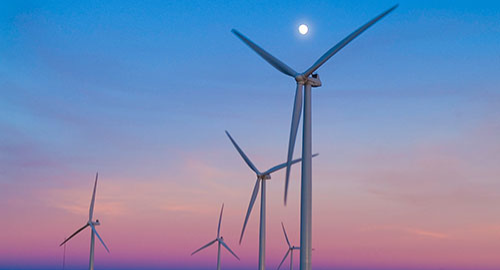circular-economy-reading-list
February 04, 2022
Browse Wiley’s latest and forthcoming titles about the circular economy, a vital concept as we move into a future where reducing waste is a crucial component of the battle against climate change.
1. Biotechnology for Zero Waste: Emerging Waste Management Techniques
Prof. Chaudhery Mustansar Hussain, Ravi Kumar Kadeppagari
Using biotechnology to minimize waste and maximize resource valorization.
Accomplished environmental researchers Drs. Chaudhery Mustansar Hussain and Ravi Kumar Kadeppagari deliver a robust exploration of the role of biotechnology in reducing waste and creating a zero-waste environment. The editors provide resources covering perspectives in waste management like anaerobic co-digestion, integrated biosystems, immobilized enzymes, zero waste biorefineries, microbial fuel cell technology, membrane bioreactors, nano biomaterials, and more.
Perfect for process engineers, natural products, environmental, soil, and inorganic chemists, Biotechnology for Zero Waste: Emerging Waste Management Techniques will also earn a place in the libraries of food technologists, biotechnologists, agricultural scientists, and microbiologists.
2. Industry 4.0 and Circular Economy: Towards a Wasteless Future or a Wasteful Planet?
Antonis Mavropoulos, Anders Waage Nilsen
How the marriage of Industry 4.0 and the Circular Economy can radically transform waste management.
Futurist and world-renowned waste management scientist Antonis Mavropoulos and sustainable business developer and digital strategist Anders Nilsen explore the Earth-changing potential of a happy (and wasteless) marriage between Industry 4.0 and a Circular Economy that could—with properly reshaped waste management practices—deliver transformative environmental, health, and societal benefits. This book is about the possibility of a brand-new world and the challenges to achieve it.
The fourth industrial revolution has given us innovations including robotics, artificial intelligence, 3D-printing, and biotech. By using these technologies to advance the Circular Economy—where industry produces more durable materials and runs on its own byproducts—the waste management industry will become a central element of a more sustainable world and can ensure its own, but well beyond business as usual, future. Mavropoulos and Nilsen look at how this can be achieved—a wasteless world will require more waste management—and examine obstacles and opportunities such as demographics, urbanization, global warming, and the environmental strain caused by the rise of the global middle class.
3. Remanufacturing in the Circular Economy: Operations, Engineering and Logistics
Nabil Nasr
Covering the strong link between remanufacturing fundamentals, the circular economy, and resource efficiency.
Learn about remanufacturing, a unique Product End-of-Life (EoL) option that increases the number of life cycles before final disposal of a product. It comes with recurring environmental benefits, such as emission and raw material extraction avoidance obtained with each additional product life cycle; it increases individual resource efficiency yields through product remanufacture, using more with less and compounding with each additional life cycle; and it decreases the demand and dependency for primary resource production by recirculating products, further closing the material loop and creating a more circular economy.
Remanufacturing offers numerous benefits, but there is a significant lack of literature and books covering the fundamentals of operations, technologies, and business models. This book provides in-depth coverage of remanufacturing fundamentals and its strong link to circular economy and resource efficiency.
4. Handbook of Biomass Valorization for Industrial Applications
Shahid Ul-Islam, Aabid Hussain Shalla, Salman Ahmad Khan
A comprehensive view of cutting-edge research on biomass valorization, from advanced fabrication methodologies through useful derived materials, to current and potential application sectors.
Industrial sectors generate massive amounts of waste each year, the disposal of which has become a major issue worldwide. As a result, implementing a circular economy that employs sustainable practices in waste management is critical for any industry. To combat these global issues without increasing our carbon footprint, we must look for renewable resources to produce chemicals and biomaterials. In that context, agricultural waste materials are gaining popularity as cost-effective and abundantly available alternatives to fossil resources for the production of a variety of value-added products, including renewable fuels, fuel components, and fuel additives.
The Handbook of Biomass Valorization for Industrial Applications investigates current and emerging feedstocks, as well as provides in-depth technical information on advanced catalytic processes and technologies that enable the development of all possible alternative energy sources. This book comprehensively covers the valorization of agricultural wastes and their various uses in value-added applications like energy, biofuels, fertilizers, and wastewater treatment.
5. Electronic Waste: Recycling and Reprocessing for a Sustainable Future
Maria E. Holuszko, Amit Kumar, Denise C. R. Espinosa
Discover the latest technologies in the pursuit of zero-waste solutions in the electronics industry.
In Electronic Waste: Recycling and Reprocessing for a Sustainable Future, a team of expert sustainability researchers delivers a collection of resources that thoroughly examine methods for extracting value from electronic waste while aiming for a zero-waste scenario in industrial production. The book discusses the manufacturing and use of materials in electronic devices while presenting an overview of separation methods for industrial materials.
Readers will also benefit from a global overview of various national and international regulations related to the topic of electronic and electrical waste.
A must-read resource for scientists and engineers working in the production and development of electronic devices, the authors provide comprehensive overviews of the benefits of achieving a zero-waste solution in electronic and electrical waste, as well as the risks posed by incorrectly disposed of electronic waste.
6. Circular Economy: From Waste Reduction to Value Creation
Karen Delchet-Cochet
A book for anyone interested in reflections on and practices of the circular economy.
The authors of this book (researchers and experts) propose solutions and recommendations for a green economy. It gives an updated overview of the reflections and practices around the circular economy.
Michael Tolinski, Conor P. Carlin
Clearing the growing confusion about polymers and their origins, uses, risks, and disposal.
Plastics & Sustainability clearly lays out the thorny and contentious issues that we encounter at the nexus of plastics and sustainability. The book serves as a practical guide for making sustainability decisions about how plastics are made and used, including current developments in the newest bio-based plastics. Designers, marketers, academics, and engineers will all find something of value in this balanced and thoughtful second edition.
8. Waste Heat Recovery in Process Industries
Hussam Jouhara
Explore modern waste heat recovery technology across a variety of industries.
In Waste Heat Recovery in Process Industries, esteemed thermal engineer Hussam Jouhara delivers an organized and comprehensive exploration of waste heat recovery systems with a focus on industrial applications in different temperature ranges. The author describes various waste heat recovery systems, like heat exchangers, waste heat boilers, air preheaters, direct electrical conversion devices, and thermal storage.
The book also offers discussions of the technologies and applications relevant to different temperature ranges present in industrial settings along with revealing case studies from various industries. Waste Heat Recovery in Process Industries examines a variety of industries, from steel to ceramics, chemicals, and food, and how plants operating in these sectors can use waste heat to improve their energy efficiency, reduce energy costs, and minimize their carbon footprint.
Forthcoming titles…
Biodegradable Waste Management in the Circular Economy: Challenges and Opportunities
Malgorzata Kacprzak, Eleonore Attard, Kari-Anne Lyng, Helena Raclavska, BalRam Singh, Eyob Tesfamariam, Franck Vandenbulcke
Presenting the major developments in new technologies and strategies for more effective recovery of matter, resources, and energy from biodegradable waste.
Biodegradable Waste Management in the Circular Economy provides a detailed overview of the latest advances in the management of biomass for economic development. Featuring contributions from an interdisciplinary team of experts, this comprehensive resource addresses various technologies and strategies for recycling organic matter and many other renewable compounds. In-depth chapters describe the concept of circular economy, identify new sources of biodegradable waste, explore technologies for the production of biodegradable waste end-products, discuss the positive and negative effects of end-products on soil and the environment, and more. Throughout the text, the authors explore systematic approaches for secure biodegradable management in various countries and regions around the world.
Joseph P. Greene
Understand the What, Why, and How behind using sustainable plastics in manufacturing operations.
This book helps readers understand the ability of plastics to be sustainable and goes over the plastic products which have a lower carbon footprint, lower waste, and lower pollution.
The well-qualified author’s unique perspective puts a special focus on comprehensive coverage of environmental impacts of plastics including Life Cycle Assessments (LCA) and sustainability strategies related to biobased plastics (e.g., corn), recycled plastics, and petroleum-based plastics.












